Select Sidearea
Populate the sidearea with useful widgets. It’s simple to add images, categories, latest post, social media icon links, tag clouds, and more.
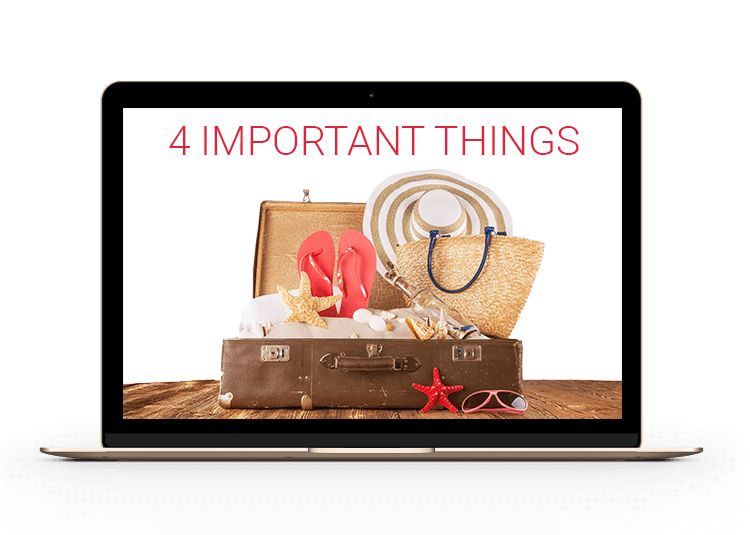
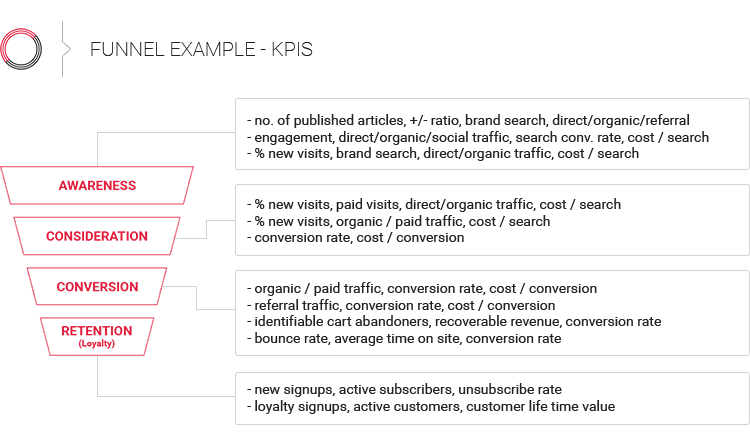
hello@youremail.com
+1234567890
+1234567890
Populate the sidearea with useful widgets. It’s simple to add images, categories, latest post, social media icon links, tag clouds, and more.


Iztok Franko
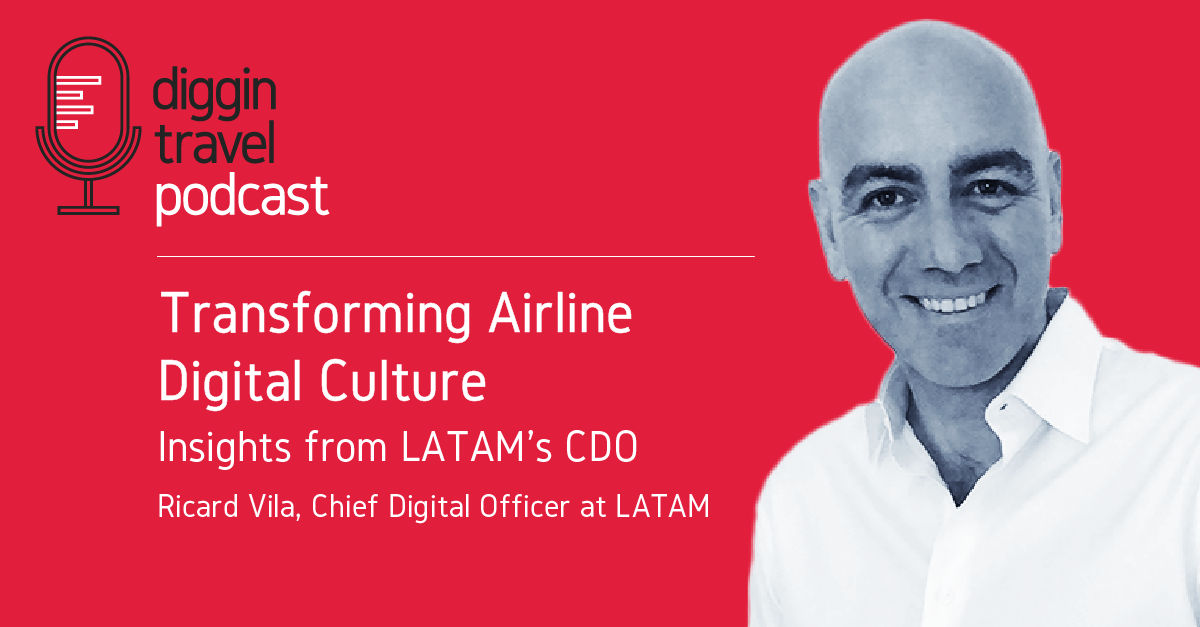
This episode of the Diggintravel Podcast was one of the most inspiring conversations I’ve ever recorded.
Why?
Because it’s not just another discussion about airline digital transformation or claims of becoming a digital airline. I’ve seen plenty of these in the past, and while many airlines talk about becoming digital-first companies, few actually translate those strategies into practice.
Most often, digital transformation for airlines means fancy new technology or digital platforms, while the people and culture part is neglected. That’s what makes LATAM’s journey so inspiring.
Tune in for this enlightening talk with Ricard Vila, one of two Chief Digital Officers at LATAM (yes, they have two, and you can discover why this arrangement makes perfect sense if you listen to the full chat), about their digital transformation that started in 2019.
Listen to the new episode of the Diggintravel Podcast to learn all you need to know about airline digital culture and LATAM’s digital transformation, or read on for key highlights from our talk with Ricard:
And don’t forget to subscribe to the Diggintravel Podcast in your preferred podcast app to stay on top of the latest airline digital strategy, marketing, data science and AI trends!
The idea of a distinct airline digital culture first caught my attention during Ricard Vila’s inspiring talk at the FTE event in Dublin (I recommend a watch to everyone), where he detailed LATAM’s innovative and different approach to digital transformation. At that talk, Ricard highlighted the need for dual talent models within an airline organization. He explained that airlines operate in two realms: the physical world of aircraft, airports, and passengers, where the economy of scale dominates, and the digital world, where customer interactions mostly occur and the economy of speed is crucial.
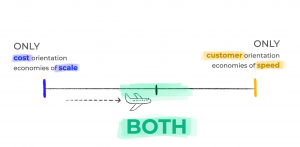
Source: Ricard Vila presnetation
Ricard discusses the genesis of LATAM’s dual talent models, emphasizing the strategic need to enhance digital capabilities. Here’s how they approached it:
We realized that attracting and retaining digital talent was going to be key for our success. It was not something that was going to kill us the next month, but it was something that if we didn’t get right, it would take us in the long term.
So we took some time aside from the crazy daily puzzles and we blocked Tuesday afternoons, and we gathered around 10 people from different roles and branches in the organization that were super motivated with the challenge. We started building a new digital talent model, and it took us three months of thinking. That was a very intense period, October, November, December of 2021, and we started 2022 with this new model.
And now we can say that we have a dual model: one that is the traditional one, it works perfectly fine for a huge variety of challenges, but that fell short for the challenge we had in the digital world. We were able to implement this alternative model for the people that are working in digital.
Some might challenge the idea of implementing two models, arguing that airlines are not digital companies like tech giants or digital natives. Ricard is no stranger to skepticism about the role of digital in the traditionally physical airline industry. He responds:
Many people say, “Why do you talk about all this digital stuff? This is for Google, this is for Netflix. We are super physical. We have huge investments. Airplanes are ultra-expensive. We are different. We are not a digital airline.” And we are. We are as digital as Amazon is. The customer journey is exactly the same with Amazon. Amazon is a huge physical company with incredible hardware and huge logistical challenges. But all your experience with Amazon is digital except for the moment that the delivery guy rings your doorbell and gives you the package. That’s your physical experience of Amazon. Amazon has behind doors a huge physical challenge to be sorted. But for you, it’s a digital company. Airlines are exactly the same.
If you’re looking for more evidence, Ricard highlighted that in their analysis at LATAM, approximately 80% of customer journey touchpoints were digital, with only 20% being physical.
If you’re keen to understand the nuances of LATAM’s Digital Talent Model, I highly recommend listening to Ricard’s detailed talk at the FTE conference. One aspect that really stood out to me was the need for a paradigm shift to effectively implement this model. Ricard highlighted three key changes that helped redefine their approach:
I’m sure that the first one in particular – earning more than your boss – will raise some eyebrows in traditional, hierarchical airline organizations; however, Ricard offers a great analogy as to why this is a critical component of an airline digital culture:
The first one, being able to earn more than your boss – this is unheard of in the corporate world, no? It’s like, of course if you are the boss, you earn more, because you have more responsibility. And everyone is like this, so why should we do it differently?
The reality is not everyone is like this. It’s not that easy to connect the dots, but we see it constantly. Take a football team. Who is the boss? The coach. And who are the individual contributors? The players. How many players do you have that earn more than the coach? A lot. Why? Because the value they create is greater. People don’t buy t-shirts from the coach. They buy t-shirts from the players, and these are the main revenue stream of many football groups. So the more value you create, the more money you get in exchange for that.
In the traditional schemes, maybe it is true that the boss creates more value than the individual contributors. I’m not sure if that’s true everywhere. But in digital challenges, it is very evident that it is not.
Ricard elaborates on the significant impact that individual contributors can have in the digital realm, especially in digital and software development within the airline organization:
In software an amazing algorithm versus an average algorithm can have a hundredfold increase in performance and in revenue generation, conversion, many things. So if that is true, and these things are mainly done by the individual contributors, how can you retain a guy that continuously creates these kinds of things and has no interest at all in leading with other people, which is what you start doing when you decide to take a leadership position.
And somehow, and probably because of the models from professional services companies, we have been used to thinking that growing the ladder means taking people leadership roles. It’s really important to retain amazing talent in these kinds of challenges to be able to pay accordingly individual contributors that can create amazing value. Like football players.
By now, it’s clear that LATAM’s digital organization, referred to as eBusiness, operates quite differently. As Ricard explains, eBusiness is a three-level organization of about 700 people, structured around two main customer journeys: order-to-cash and door-to-door. This setup follows a matrix model with chapters and squads, allowing for flexible and dynamic team interactions. Embracing a philosophy of servant leadership, LATAM depicts their organizational charts upside down to reinforce this concept.
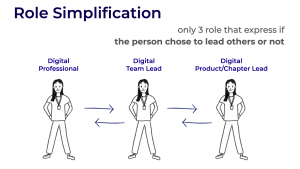
Source: Ricard Vila presnetation
There is one other interesting part of LATAM’s organization. But before we get there, let me say that many of my colleagues in the airline industry frequently ask about the optimal way to organize digital teams. Questions often arise about whether digital development should fall under IT, marketing, or operate as a separate digital unit. So, when I learned that LATAM has two Chief Digital Officers – one from IT and another from the commercial area – I found it particularly fascinating.
At that moment in time, we had to integrate this new experiment inside the organization. There was no one in the organization that was deeply knowledgeable at the same time in commercial aspects and in digital aspects, so we opted for this dual leadership.
To be honest, it is a privilege to be able to co-lead. It’s super difficult. At the beginning I used to say that if leading is difficult, co-leading is almost impossible. But once you find the ways – and I think it’s very important to team up with somebody that is profoundly generous, that has a CEO mindset, that doesn’t have a personal agenda, and that is very practical and very willing to not put much importance on the mistakes that have passed and to look into the new opportunities that are coming in the future. I’m describing Nico (Nicolas Salazar). There’s no need to be similar. I think in our case, we are really different. We have a different set of strengths, and I think this has been to our advantage, these differences.
After a moment of reflection, Ricard highlighted one crucial aspect that contributed significantly to the success of their unique model:
He (Nico) was coming from commercial, I was coming from IT, but the two of us were obsessed with the customer. I think this is super important. Super, super important.
If you want to learn from leaders like Ricard about airline digital culture, digital marketing, and AI, or just want to be the first to know when our next podcast will be published, please:
I am passionate about digital marketing and ecommerce, with more than 10 years of experience as a CMO and CIO in travel and multinational companies. I work as a strategic digital marketing and ecommerce consultant for global online travel brands. Constant learning is my main motivation, and this is why I launched Diggintravel.com, a content platform for travel digital marketers to obtain and share knowledge. If you want to learn or work with me check our Academy (learning with me) and Services (working with me) pages in the main menu of our website.
Download PDF with insights from 55 airline surveyed airlines.
Thanks! You will receive email with the PDF link shortly. If you are a Gmail user please check Promotions tab if email is not delivered to your Primary.
Seems like something went wrong. Please, try again or contact us.


No Comments